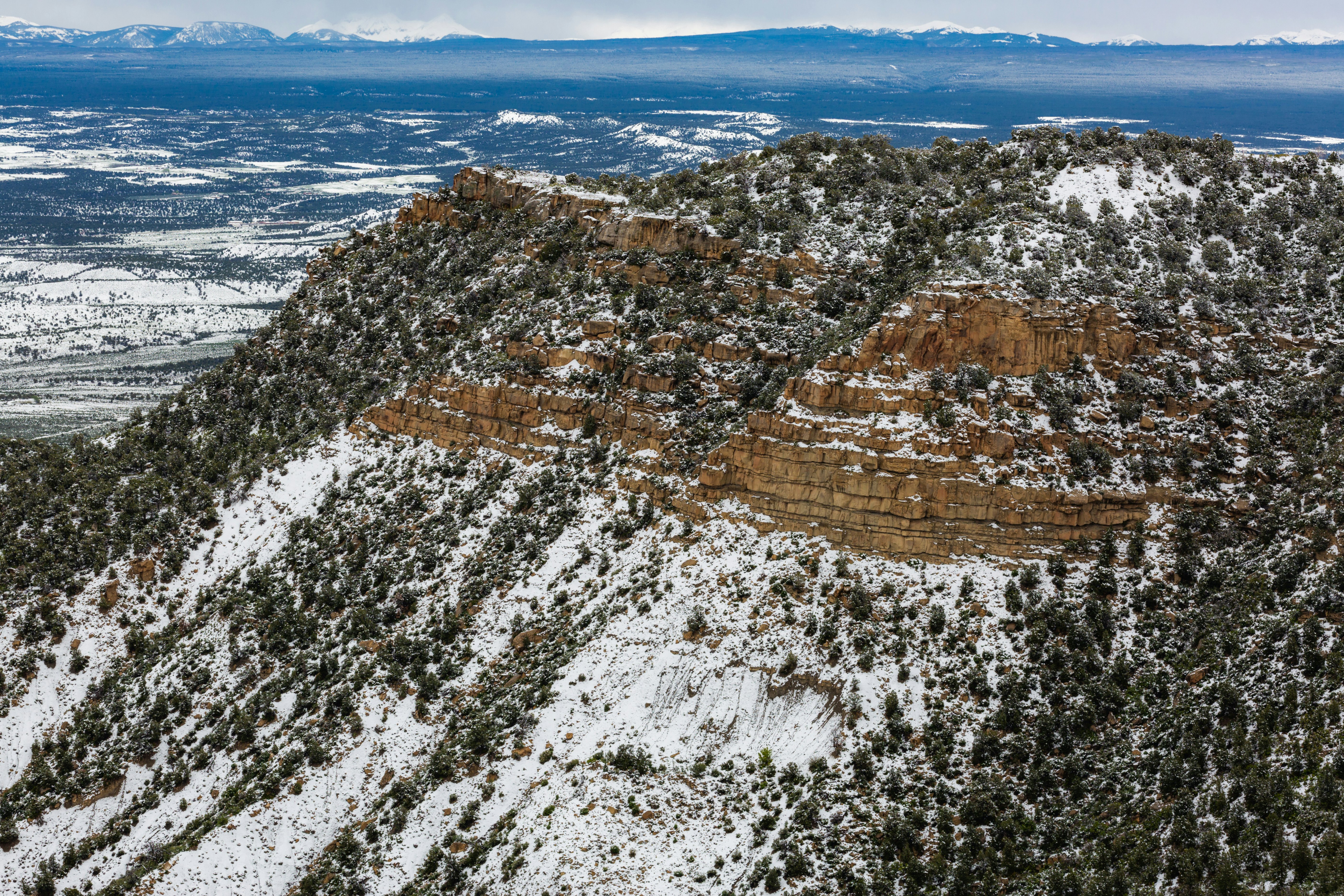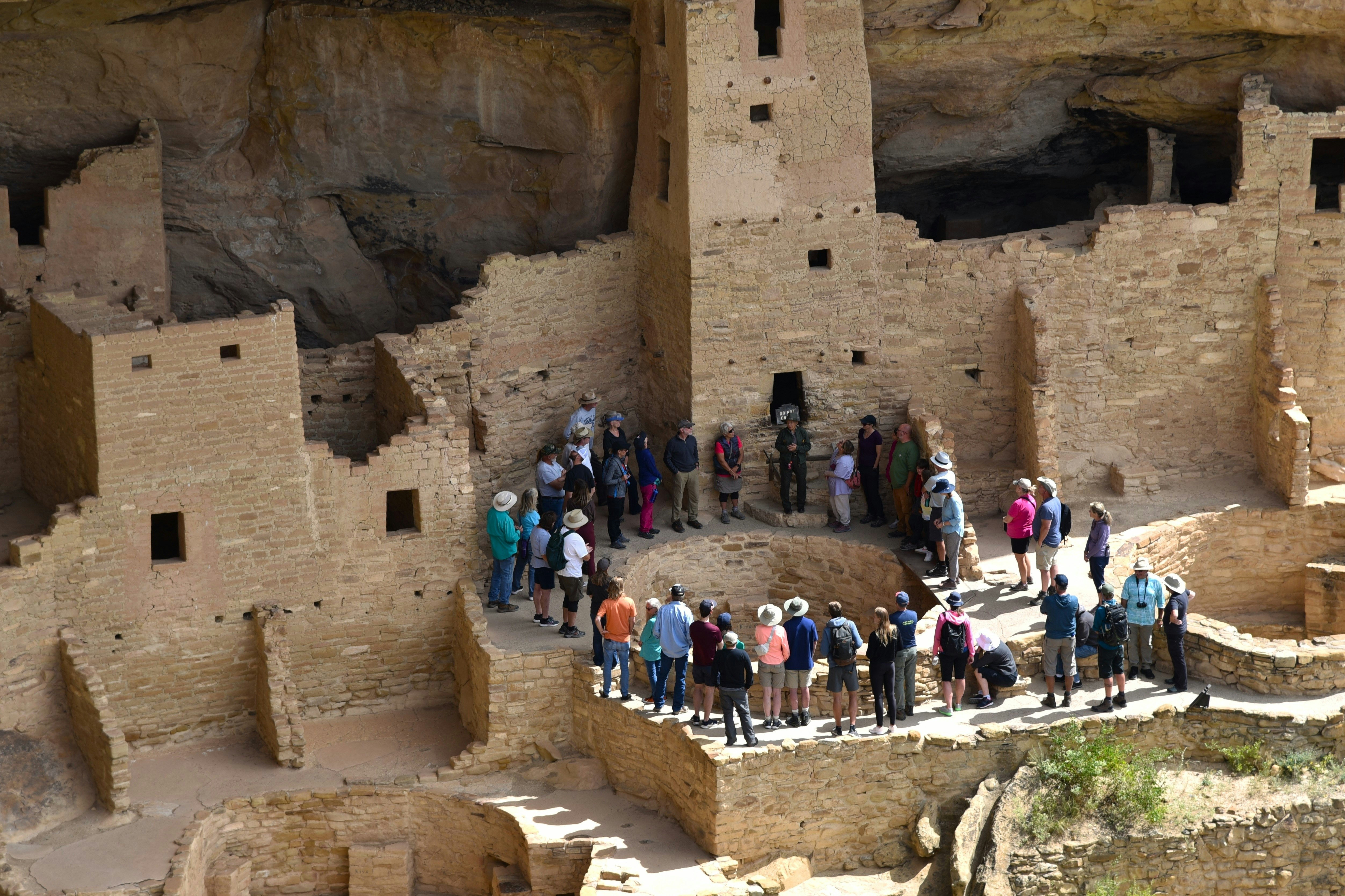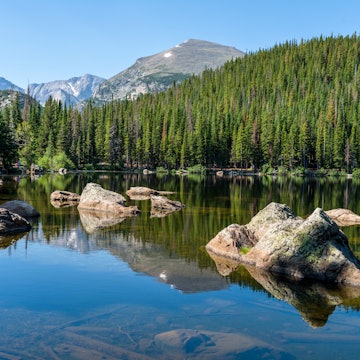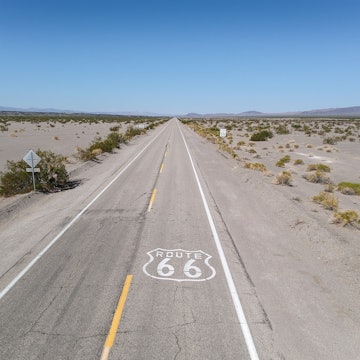

Get to know Mesa Verde National Park, and its ancient cliff dwellings, with our first-time guide © Sopotnicki / Shutterstock
Around the year 550 CE, the Ancestral Pueblo people began settling in what is today southwest Colorado. Here, on a slightly sloping section of the Colorado Plateau, they farmed, made pottery, wove baskets, and built sprawling villages within the canyon walls.
Then, around 1300 CE, they moved away and never returned. It’s not clear why the Ancestral Pueblo deserted the place that had been their home for roughly 700 years. But they left behind many clues about their rich cultural heritage, which today’s archaeologists are still eagerly studying.
Recognizing the value of the Ancestral Puebloan’s artifacts and cliff dwellings, President Theodore Roosevelt created Mesa Verde National Park in 1906. It was the first national park to “preserve the works of man,” as Roosevelt said, in addition to natural resources. The park protects nearly 5000 archaeological sites, including 600 cliff dwellings.
Mesa Verde is one of four national parks in Colorado. Though it’s the farthest from Denver, this archaeological marvel is well worth the extra drive time. Here’s what to know as you start planning your first visit.

When should I go to Mesa Verde National Park?
Mesa Verde is open all year round, though the weather, crowds and conditions vary from season to season.
Summer is the busiest season at Mesa Verde, when temperatures climb into the 70ºFs and 80ºFs. But even during peak season, Mesa Verde doesn’t get crowded: in all of 2023, it saw a little more than 500,000 visitors (compared to several million at other, more popular parks). During the busiest weeks, around 3000 people enter the park each day.
Pleasant weather aside, one of the main reasons for visiting in the summer is the availability of ranger-led tours of the cliff dwellings. The only way to enter the cliff dwellings is on a guided tour, and tours are only offered between May and October.
If you visit during the winter, you’ll feel like you have the whole place to yourself— some days, just 50 people enter the park. You won’t be able to enter the cliff dwellings, since there are no tours in the winter, but you will still be able to see them from various overlooks and viewpoints. Since the park is located between 7000 and 8500ft above sea level, it can get pretty chilly and snow is always a possibility. But, with the right gear and mindset, you can still have a good experience — and the landscape looks stunning when covered with a dusting of fresh powder. Another perk: during the winter, rangers groom some of the park’s trails for cross-country skiing and snowshoeing, and snowshoes are free to borrow.
How much time should I spend in Mesa Verde National Park?
The park is relatively small, at just over 52,000 acres, but there’s a lot to see. Ideally, you’d spend at least two full days here.
Rangers offer three unique guided tours of the cliff dwellings that range from 45 to 90 minutes long. I highly recommend booking all three, if you can, because they each visit different structures – Balcony House, Cliff Palace and Square Tower House – and the rangers are incredibly knowledgeable. Tour availability may also dictate how long your group ends up spending in the region, because they tend to book up. Beyond that, the park service recommends a minimum of two hours between tours, so you may need to spread them across several days.
If you can only spend a few hours at Mesa Verde, download the free audio tour podcast, then listen to it while driving the Mesa Top Loop Rd. Along the 6-mile route, you can pull over to look at some of the cliff dwellings from a distance and take short hikes.
Is it easy to get in and around Mesa Verde National Park?
Mesa Verde is located in the far southwest corner of Colorado, around an hour from the Four Corners border with Arizona, New Mexico, and Nevada. It’s not near any major cities or airports, though you could fly to one of the small airports in Cortez, Colorado; Durango, Colorado; or Farmington, New Mexico. Once you land, however, you’d still need to rent a vehicle, as public transit is limited and you need a car to get around inside the park.
Most people road trip to Mesa Verde. From Denver, it’s a roughly seven-hour drive through some gorgeous Rocky Mountain scenery. Mesa Verde is roughly four hours from Albuquerque and seven hours from Phoenix. If you’re planning a longer trip to see multiple national parks in Arizona and Utah — like the Grand Canyon or the Mighty 5 — Mesa Verde is worth the detour.

Top things to do in Mesa Verde National Park
Step back in time in ancient cliff dwellings
Admire the engineering and architectural skills of the Ancestral Pueblo people while exploring their cliff dwellings. You’ll need to book a guided tour with a ranger to go inside (tickets are $8 or $25 per person, and reservations open 14 days in advance). Cliff Palace is the most popular (and the most accessible) tour, while Square Tower House tends to appeal to more intrepid adventurers. If you can’t book a tour, you can still see the cliff dwellings — it’ll just be from a distance.
Stay up late for incredible stargazing opportunities
Sneak in a quick nap so you can stay up past your normal bedtime. Because of the lack of nearby big cities and the dry climate, it gets really dark here, which creates perfect conditions for stargazing. (Don’t just take my word for it: Mesa Verde was designated an International Dark Sky Area in 2021.)
If you’re spending the night inside the park at Far View Lodge or Morefield Campground, simply head outside after the sun goes down and look up. If you’re staying elsewhere, drive into the park after dark and stop at one of the pull offs, like Montezuma or Geologic overlooks. While you stargaze at Mesa Verde contemplate this: you are connecting across the centuries with the Ancestral Pueblo people, who were highly attuned to the night sky.
Look — and listen — for birds
Bring a pair of binoculars so you can look at the cliff dwellings from afar, but also so you can get a closer view of the many bird species that call the park home. A wide variety of birds live here — from zippy broad-tailed hummingbirds to brightly colored western tanagers to chatty wrens and more. You may also spot some birds of prey, including golden eagles and Cooper’s hawks. And remember: you’re likely to hear a bird before you see it, so keep your ears open, too.
Pitch a tent (or park an RV)
There’s perhaps no better way to disconnect from reality than camping. Mesa Verde’s Morefield Campground is home to 267 campsites, and can accommodate tents, RVs and groups. (And if you’re worried about roughin’ it, Morefield has lots of creature comforts too, including showers, a camp store and a laundromat.)
Outside the park, you’ve got several other options, including log cabins at Ancient Cedars RV Park and shady spots at Target Tree Campground, to name a few. If you’d rather sleep indoors, book a room at Far View Lodge or stay at a hotel in nearby Cortez, Mancos or Durango.
Hike the varied trails
Stretch your legs while taking in the sights, sounds, and smells of the park. Mesa Verde has nearly 30 miles of hiking trails, ranging from mellow jaunts to challenging treks.
If you’re coming from sea level, go easy on yourself as you acclimate to the altitude by starting with a short hike. The Farming Terrace Trail, for instance, is just a half-mile loop but it takes you past check dams constructed by Ancestral Pueblo farmers to help irrigate their crops.
If you’re a more experienced mountaineer, consider the Petroglyph Point trail. It’s short, at just 2.4 miles round trip, but difficult because it includes scrambling up a cliff and shimmying between boulders. Just beyond the halfway point, you’ll come across a petroglyph panel featuring handprints, stick figures and geometric shapes.

My favorite thing to do in Mesa Verde National Park
In the spring and summer, colorful wildflowers bloom throughout Mesa Verde National Park. I love snapping photos of them with my camera and, sometimes, I even bring a small set of watercolors so I can paint them en plein air. (I’m not a great artist, but I find painting helps me notice small details I might have otherwise overlooked.) Some of my favorites are the bright red blooms of the claret cup cactus, the dainty pink blossoms of the wild rose, and the cheery yellow flowers of the arrowleaf balsamroot.
How much money do I need for Mesa Verde National Park?
Mesa Verde is an affordable destination to visit. However, keep in mind that the park is relatively remote, so there aren’t a ton of options for dining and lodging.
Basic room for two: $125–175
Campsite: $40
Self-catering apartment (including Airbnb): $100–200
Guided tour: $8–25
Coffee: $3
Sandwich: $9–12
Dinner for two: $50
Beer/pint at the bar: $5
What should I pack for Mesa Verde National Park?
Sturdy hiking shoes are an absolute must for visiting Mesa Verde, as the terrain is rugged and can be uneven. Also be sure to bring sunscreen and a reusable water bottle. The park is situated at a higher elevation than you’re probably used to, which means it’s easier to get sunburned and dehydrated. Weather conditions can change rapidly throughout the day, so layers are handy for dressing up or down. No need to bring dress clothes — casual activewear is acceptable everywhere.
What’s the etiquette at Mesa Verde National Park?
Mesa Verde, like other national parks and wilderness areas, asks visitors to adopt the “leave no trace” ethic. Philosophically, this means taking care to leave the park exactly as you found it, so that future generations can enjoy it. In practice, it means disposing of garbage, hiking only on designated trails, not touching archaeological artifacts or picking wildflowers, not leaning or climbing on structures, and giving wildlife a wide berth. Don’t carve your initials (or anything else) into the cliffs, don’t knock over boulders, and remind children to be quiet and respectful.
Where else should I go while visiting Mesa Verde National Park?
It’s a long drive to southwest Colorado, so you may as well stick around for a few days and explore beyond the park. I recommend checking out Durango, an outdoorsy, mid-sized town on the Animas River. Home to roughly 20,000 residents and Fort Lewis College, Durango has a walkable downtown, a white water park, breweries, mountain bike trails, and more. If your schedule allows, book a relaxing ride on the Durango and Silverton Narrow Gauge Railroad, which runs on tracks dating back to the 1880s.
















